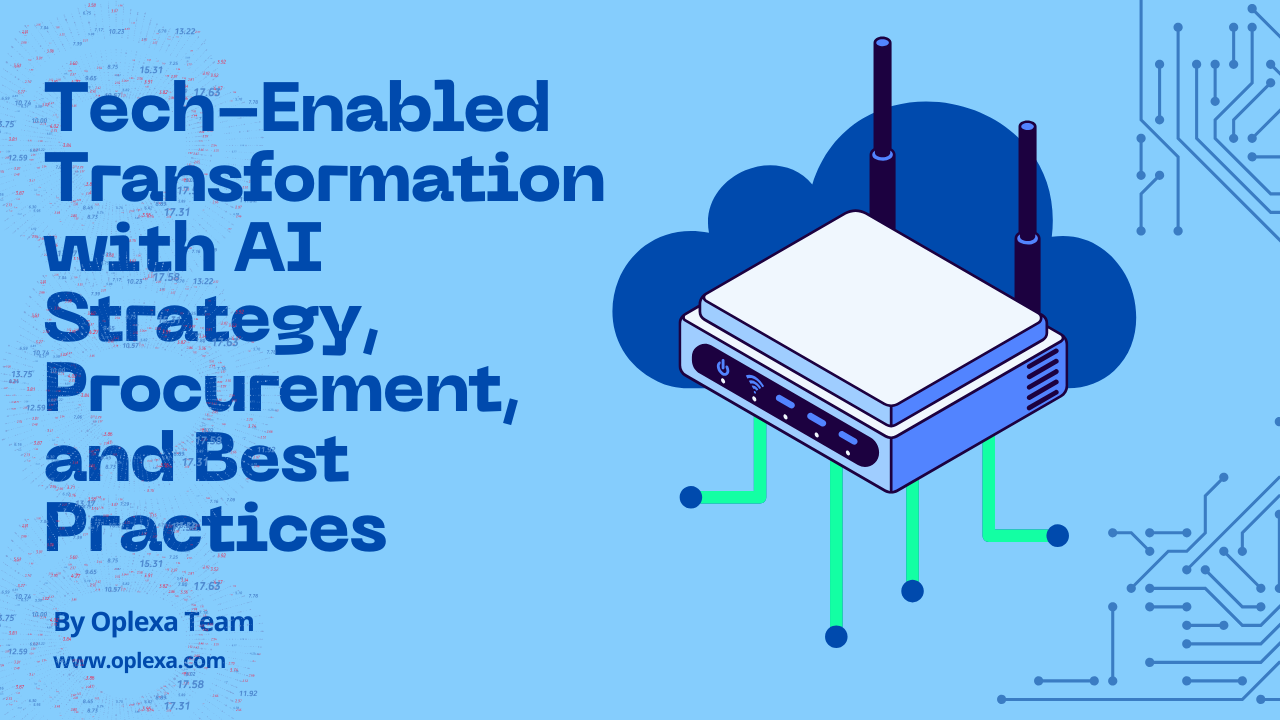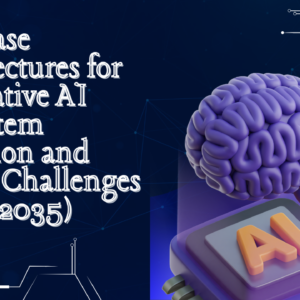1. Executive Summary:
-
- Overview of tech-enabled transformation and AI integration
- Key trends in automating business processes (finance, procurement, supply chain)
- Market outlook for AI-enabled transformation solutions
2. Tech-Enabled Transformation Strategy:
-
- Defining the Transformation Strategy:
- Identifying business process pain points and opportunities for improvement
- Role of AI and automation in enhancing efficiency
- Alignment with organizational goals and digital transformation roadmaps
- Developing a Business Case:
- Financial modeling for ROI calculation
- Metrics for success: cost savings, efficiency, accuracy
- Risk mitigation and long-term benefits of automation
- Vendor Selection Process:
- Evaluating vendors based on solution capabilities, scalability, and support
- Key criteria: AI expertise, technology stack, customer success, and industry reputation
- Shortlisting and conducting Proof of Concept (PoC) assessments
- Implementation and Scaling:
- Phased implementation: From pilot projects to enterprise-wide deployment
- Change management strategies for organizational buy-in
- Ensuring scalability and continuous improvement post-deployment
- Defining the Transformation Strategy:
3. Procurement and Implementation of AI Business Process Automation:
-
- Key Steps in Procuring an AI Solution:
- Requirements gathering and alignment with internal stakeholders
- Pricing models and budget considerations (e.g., licensing, subscription, usage-based)
- Contract negotiation and vendor management
- Implementation Process:
- Best practices for integrating AI into existing systems
- Timeline management and resource allocation
- Cross-functional collaboration for successful deployment
- Pain Points and Challenges:
- Integration challenges with legacy systems
- Data quality and availability for AI model training
- Managing expectations and minimizing disruption to ongoing operations
- High Points and Successes:
- Efficiency improvements: Reduced manual labor, faster processing times
- Improved decision-making through AI-driven insights
- Enhanced accuracy and compliance in finance, procurement, and supply chain processes
- Lessons Learned from Past Projects:
- Importance of early stakeholder engagement
- The need for a robust data governance framework
- Continuous training and support for end-users
- Example Price Points for AI Solutions:
- Cost breakdown: Development, implementation, and maintenance
- Typical pricing models (per user, transaction-based, custom enterprise solutions)
- Budget allocation for AI tools vs. traditional process automation tools
- Key Steps in Procuring an AI Solution:
4. Key Considerations for AI-Enabled Solutions:
-
- Customization vs. Off-the-Shelf Solutions:
- Trade-offs between flexibility and speed of implementation
- Long-Term Maintenance and Support:
- Continuous updates and model retraining
- Vendor support and managed services post-implementation
- Compliance and Security:
- Ensuring data security and privacy within AI systems
- Navigating industry-specific regulations
- Customization vs. Off-the-Shelf Solutions:
5. Future Outlook: AI’s Role in Business Process Transformation:
-
- Emerging Technologies Impacting Business Automation:
- AI-powered predictive analytics, process mining, and intelligent document processing
- AI-Driven Innovation in Supply Chain and Finance:
- Automating procurement, optimizing inventory, and improving cash flow management
- Challenges and Opportunities for AI-Enabled Business Process Automation:
- Key barriers to adoption (skills gap, budget constraints)
- Potential breakthroughs and next-gen AI applications for businesses
- Emerging Technologies Impacting Business Automation:
6. Case Studies: Successful Tech-Enabled Transformation Projects:
-
- Example 1: AI in Supply Chain Automation:
- Key outcomes: Reduced lead times, improved supplier management, cost reduction
- Example 2: AI-Driven Finance Automation:
- Impact: Automated invoice processing, faster reconciliation, improved audit readiness
- Example 3: Procurement Transformation:
- Outcome: Enhanced procurement accuracy and supplier negotiations through predictive analytics
- Example 1: AI in Supply Chain Automation:
7. Strategic Recommendations:
-
- For Enterprises Looking to Adopt AI for Business Process Automation:
- Building an internal AI strategy and fostering a culture of innovation
- Prioritizing data quality and governance as foundational elements
- Ensuring a phased rollout with strong focus on PoC validation
- For AI Vendors:
- Enhancing flexibility and customization to cater to diverse industries
- Providing robust support and integration tools for easier adoption
- Offering clear ROI metrics to build trust with enterprise customers
- For Enterprises Looking to Adopt AI for Business Process Automation:
8. Appendices:
-
- Glossary of Key AI and Automation Terms
- Sample Pricing Models
- Industry Data and Forecasts on AI-Enabled Business Transformation
#TechTransformation #AIIntegration #BusinessAutomation #AIPoweredSolutions #ProcessAutomation #DigitalTransformation #AIInBusiness #ProcurementAI #SupplyChainAI #AIMarketTrends #AIForEnterprises #AIImplementation #AIBusinessCase #AIInSupplyChain #PredictiveAnalytics #IntelligentAutomation





